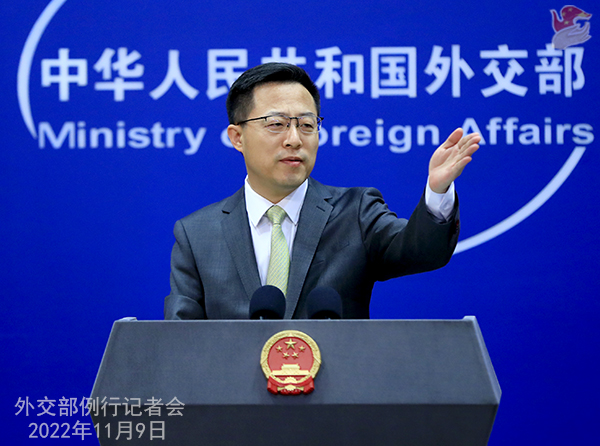BEIJING: “We urge developed countries to earnestly step up to their historical responsibilities and fulfill their due international obligations. In particular, they should deliver on their promise of mobilizing $100 billion per year for climate action in developing countries as soon as possible,” said the Chinese Foreign Ministry Spokesperson Zhao Lijian on Wednesday’s routine press conference.
Zhao made the remarks in response to the report commissioned by the COP26 and COP27 climate summit hosts released on November 8 which said that developing countries need investments well beyond $2 trillion annually to stop global warming and cope with its effects. Zhao Lijian said that the global process on climate change now faces severe challenges, and developing countries have suffered the most from climate change. “We support the Conference of the Parties in making reasonable arrangement on the issue of loss and damage which is of great concern to developing countries,” he said. He added that developed countries should offer a roadmap for doubling adaptation finance, and take credible steps to help developing countries improve climate resilience, enhance mutual trust between the North and the South and form greater synergy in actions.
In climate response, he further said that China is a country that walks the walk. “We have actively implemented the national climate change strategy, and unswervingly pursued a green and low-carbon path of development that prioritizes ecological protection,” he said. Zhao said that since China announced the ambitious goals of carbon peaking and carbon neutrality, notable progress has been made in that direction, and he gave some figures. From 2012 to 2021, China supported an average annual economic growth rate of 6.6 percent with an annual energy consumption growth rate of 3 percent; its carbon dioxide emissions per unit of GDP dropped by about 34.4 percent, and its energy intensity fell by 26.4 percent, achieving a cumulative saving of 1.4 billion tonnes of standard coal. –Agencies
Home CHINA-CPEC-BRI China urges developed countries’ $100China urges developed countries’ $100b for Climate action:...






